Sean Bodley - Interview with Sean Bodley
 Sean Bodley is a solo instrumental guitarist, and a former member of Tauranga act The Eternal Sea. Jeremy from Muzic.net.nz caught up with him recently to talk about his new album, guitar heroes and his future plans. Here's what was said:
Sean Bodley is a solo instrumental guitarist, and a former member of Tauranga act The Eternal Sea. Jeremy from Muzic.net.nz caught up with him recently to talk about his new album, guitar heroes and his future plans. Here's what was said:
You’ve recently released the new single Brace For Impact from your forthcoming album I Am Human, what can fans expect from the rest of the album?
I think Brace For Impact has shocked a few people. It’s quite a departure from what I’m known for, less organic and more of a processed/electronic sound. I think the album as a whole leans a little more to that kind of music. Still some more mainstream, straight ahead Rock-type guitar songs, but mixed in with tracks that focus heavily on ‘electronic’ rather than ‘organic’ tones.
The artwork for I Am Human is very striking, how did the cover come about and what was the thought process or artistic direction behind it?
I had the idea for I Am Human a couple of years ago, back when I first started my Genesis album. I knew after doing an album with a drummer, bassist, keyboard player etc. that I wanted to go the complete opposite direction. Drum loops, synths, heavy editing, and I guess more clinical guitar tones.
The concept is basically that the album is all electronic and digital, except for me. I guess it’s saying, this album is 99% digital technology, but then I am the guitar, and, I Am Human.
The artwork originally had me on the cover, but I decided once the music started coming together, that I needed a ‘face’ for the album, something to represent the digital aspects of the sound while still looking somewhat human.
Instrumental guitar albums don’t come around too often, are there any challenges you face when writing or releasing music solely focused around instrumentation, opposed to traditional song writing with vocals?
Well firstly, the idea of an ‘album’ is a big decision in itself. Do people listen to entire albums anymore?
In this Spotify generation it seems everything is consumed as single tracks etc. by the younger generation, but to me, an album is like a story… a beginning, chapters and an ending, so right away I’m showing my age and possibly alienating the younger fan base!
The next step to overcome is what I call the ‘3 minute attention span’. You know the drill; radio songs must be 3 minutes long, verse, chorus, verse etc. etc. and my music just doesn’t conform to that template. On this album there are a couple of 7 min songs, a few are 6 minutes etc. so I struggle to get my story told in 3 minutes.
Finally, the biggest hurdle, (and I come across this in about 90% of the reviews I read), is the fact that I enjoy playing melodies, so if there was a vocalist on the album, I’d be back to playing chords with the odd solo. As I get older I think I understand more that people expect lyrics in songs, but I’ve grown up loving orchestral music, soundtracks, etc. I don’t think you need a singer to have a great song, and it’s nice to have variation, but who knows, I might try singing on a track one day!
 Who are some of your personal guitar heroes?
Who are some of your personal guitar heroes?
I used to feel really uncomfortable being compared to Joe Satriani, to the point where I stopped using my Satriani guitars for a few years to try and distance myself from that comparison; now I just take it as a compliment. I can hear his influence in some of my playing for sure, but when I listen to Joe, I hear more things I can’t do, than those I can. I got to meet him a couple of months ago and have a chat; it was quite surreal!
Steve Vai and John Petrucci are two other guitarists that have inspired me over the years, but I love lots of guitarists. From the obvious Stevie Ray Vaughan, Jimi Hendrix, Mark Knopfler, David Gilmour & Jimmy Page, to maybe the not so obvious, lately I’ve really started to get into Jake Kiszka (Greta Van Fleet); I really love his tone and feel!
And I can’t forget my guitar teacher, Terry Varhalamas; he pushed me hard to learn, even though at times I thought I knew it all, he always knew more!
You’ve used some interesting guitar tones and harmonies, what inspires you to create your sounds and what equipment are you using to achieve this?
Well, I try and use everything I can get my hands on!
On this album I used a Peavey JSX head, Marshall JVM410HJS head, Axe FX II XL+, and an old ART SGX2000 Preamp from the late 80's. I wanted to get a more sterile, robotic kind of tone on a few tracks, so I was using things like vocal auto tune on guitar tracks, and adding distortion to acoustic guitars, crazy stuff like that.
The Axe FX was still the ‘go to’ piece of gear on the album; give me a JSguitar and the Axe FX and I doubt I’d ever run out of ideas. A few pedals I used on this album were the Voodoo Labs Proctavia, EHX Pog 2, and the Vox Big Bad Wah.
As far as inspiration goes, 90% of the time I come up with a rhythmic idea, loop it, and play over it until I have a melody that I think fits. The harmonies I generally do last, and I fit them in where I think they’re needed. I tend to work the harmonies out by sound rather than writing them out and making them say ‘a 5th’ above the melody line etc. I think it makes my harmonies more interesting and less predictable.
 I Am Human not only features great guitar playing, but also some great Synthesizer parts, did you produce and track everything yourself and what’s involved in your typical recording process?
I Am Human not only features great guitar playing, but also some great Synthesizer parts, did you produce and track everything yourself and what’s involved in your typical recording process?
Thanks, I’m playing everything myself. Synth parts aren’t too hard; I can play basic chords etc. and I enjoy the layering process. There’s a track on the album that has a full on piano part in it. I have some friends who are great pianists, but I wanted to do this myself, so I’d record the chords and then overdub the melody etc. and built it up until it sounded like someone playing piano; sadly, I can’t play the part for real!
I’m a big fan of creating layers for the melody to sit on. Music Theory can be so valuable for this. When you’re doing 12 or so tracks on an album, it can become hard for the listener if you use the same ideas on each track. Power chords are great, but they don’t tend to lend themselves to promoting scales and modes in the solos and melodies, so sometimes you have to take a complex chord and break it down and spread it over multiple instruments. I learnt this from my High School music teacher when I was 13/14. She would make 3 of us sit in a group with guitars, one of us would play a C note, the other an E and the next a G, so as individuals we were playing notes, but together we were playing a chord; it’s a really powerful concept.
I Am Human will be your sixth full-length release, drawing on your own experience, how has the music industry changed since your debut album was released back in 1999?
I remember reading an interview with Jim Morrison, where he foretold that one day music as an entity would become worthless in a monetary sense. I kind of feel that’s the point we‘re at now; music has no real value. You can listen to a million songs for just $9.95 a month and the artist gets nothing, so they resort to touring, music camps, band merch, anything they can to make the money the albums don’t. My albums actually sell more with each release, but I make less; welcome to the music business!
I guess in 1999 I thought I’d release an album, everyone would love it, and I could just play music until the day I died; it’s free to dream huh! Now I see big name artists struggling to make a profit, and realised you have to do it cause you love it.
If you’re lucky, you can make a living at it. If you’re really lucky you can make a lot of money at it, but do it cause you enjoy it. I’d like to think my playing and songwriting have improved with each album, that’s why I do it really, as a kind of timeline to my growth as a musician.
 Music technology has been exponentially growing throughout the past decade, do you think the electric guitar and its surrounding technologies has changed much over the years, and if so, in what ways?
Music technology has been exponentially growing throughout the past decade, do you think the electric guitar and its surrounding technologies has changed much over the years, and if so, in what ways?
Firstly, I think we are spoiled for choice these days, there’s so many brands and types available, and in so many price ranges.
As far as technology goes, I think it’s a double-edged sword. We now have preamps and effects processors where you can dial in the exact tones of say David Gilmour, which is great; you can jam along with a Pink Floyd backing track and ‘hey presto’, you sound just like him. However, there’s already a David Gilmour; you need to use this technology to find your own unique voice on the instrument. I know many guys who sit and fiddle with pedals, amps, effects etc. and then can’t be bothered making music. I think you need to set aside time to embrace new tech and see what it can do for you, but also draw a line in the sand, pick a tone, and make some music with it (if that’s your goal).
I still think a guitar plugged into a tube amp has a magic to it that has yet to be replicated; there’s something about the power behind you and the movement of the air from the speakers. Technology has allowed us to make music faster, in better quality than ever before. You can literally record a studio quality album on your iPad; it’s quite amazing.
What advice would you give someone who’s new to the guitar and wants to improve their skills and create their own signature sound?
I tell my students that playing something is only learning it to 50% to completion, understanding it is the other 50%. It’s OK to play chords, C, D, G etc. but true mastery of the instrument comes from knowing what a chord is, what it's made of, how it relates to other chords, keys, scales etc.
I know some great players that have a great technical proficiency on their instrument, but their understanding of what they’re doing is quite limited. I remember my teacher saying to me, “Imagine trying to explain over the phone to a piano player how to play Master Of Puppets”. So, I learnt to be able to explain what it was that I was doing, and it was my greatest lesson on the guitar. Speed, technique etc. all come with practice, but knowledge, you have to really work at it. It’s a lot to take on though, but even a little theory knowledge will benefit you.
As far as developing your own sound, I’d say trust your ears. If you think it sounds good, go with it. Don’t try and play what’s popular or what you think others will like, just play what you enjoy, and your own voice will come through.
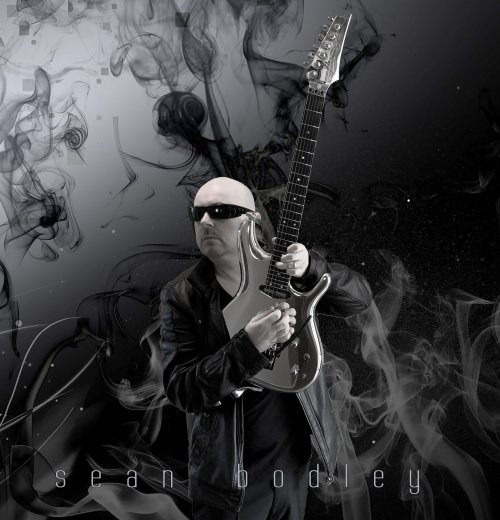 Do you have any future plans for a tour, and if so, would this be a solo or band scenario?
Do you have any future plans for a tour, and if so, would this be a solo or band scenario?
I started putting a band together at the end of 2018 to play stuff from my albums. We also threw in some Satriani covers for good measure; not an easy task since I love all his layering etc. and we were trying to pull it all off as a 3 piece which wasn’t easy. Then disaster struck; I woke one morning to severe pains in my right hand, which was diagnosed as soft tissue damage/Tendonitis, so I had to put the band on hold for several months to rest up.
Then the album came along, so the band stayed on the back burner. We had another couple of rehearsals after my hand started to heal, but I just wasn’t feeling it. I had great players and the music sounded fine, but there was just something missing. I wasn’t enjoying it like I should have, so I shelved the project to focus on finishing the album.
As it stands I have no plans to do my solo stuff live, I just really don’t know if there’s much of an audience for it? I could be wrong, but it’s a lot of work to put in and I just don’t know if now is the right time. I’m always open to joining a band though, but as time passes I’m a lot more pickier about what I put my energy into. The band has to be motivated and pro-active, or I lose interest fast, but hey, if you need a guitarist, hit me up, you never know!
If you could sum up your musical style in as few words as possible, what would it be?
Hmmm it seems a bit bland but ‘Instrumental Guitar Rock’ seems to cover most bases. But I tend to think of myself as a composer who plays guitar :)
You can listen to Sean's singles here, and purchase his album here.
About Sean Bodley

Sean Bodley (1999)
Acoustic Soundscapes (2014)
Balance (2014)
Visit the muzic.net.nz Profile for Sean Bodley
Releases
Other Interviews By J_Plates
 Zoe Jennings - Interview with ZÖ
Zoe Jennings - Interview with ZÖ
16 Apr 2019 // by J_Plates
ZÖ is a new artist who’s set to release a small collection of songs, in which she sings candidly about her experiences and struggles in a way that lets others be vulnerable. Jeremy from Muzic.
Read More...
 Missrosevalentina - Interview with Hybrid Rose
Missrosevalentina - Interview with Hybrid Rose
05 Apr 2019 // by J_Plates
Wellington based Hybrid Rose's musical character showcases the embodiment of too much sugar, too much spice and a little bit of underground flamboyance. Jeremy from Muzic.
Read More...
 Interview: Anxiety Club
Interview: Anxiety Club
20 Feb 2019 // by J_Plates
Anxiety Club released their debut studio EP titled Black Heart in October 2018 and is about to embark on a three-date tour touching down in Auckland, Wellington, and Christchurch during March of this year. Kev (vocals, guitar) spoke to Jeremy from Muzic.
Read More...
Most Viewed Artists
Latest Galleries
NZ Top 10 Singles
- APT.
ROSÉ And Bruno Mars - DIE WITH A SMILE
Lady Gaga And Bruno Mars - BIRDS OF A FEATHER
Billie Eilish - TASTE
Sabrina Carpenter - I LOVE YOU, I'M SORRY
Gracie Abrams - ESPRESSO
Sabrina Carpenter - SAILOR SONG
Gigi Perez - LOSE CONTROL
Teddy Swims - A BAR SONG (TIPSY)
Shaboozey - GOOD LUCK, BABE!
Chappell Roan










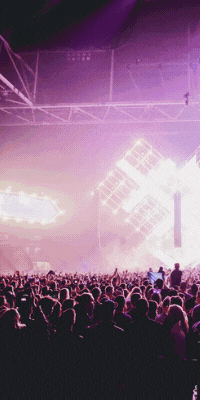
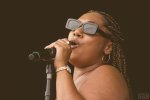
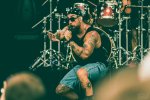
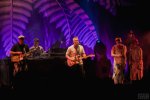
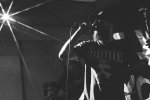


 Report A Problem
Report A Problem

